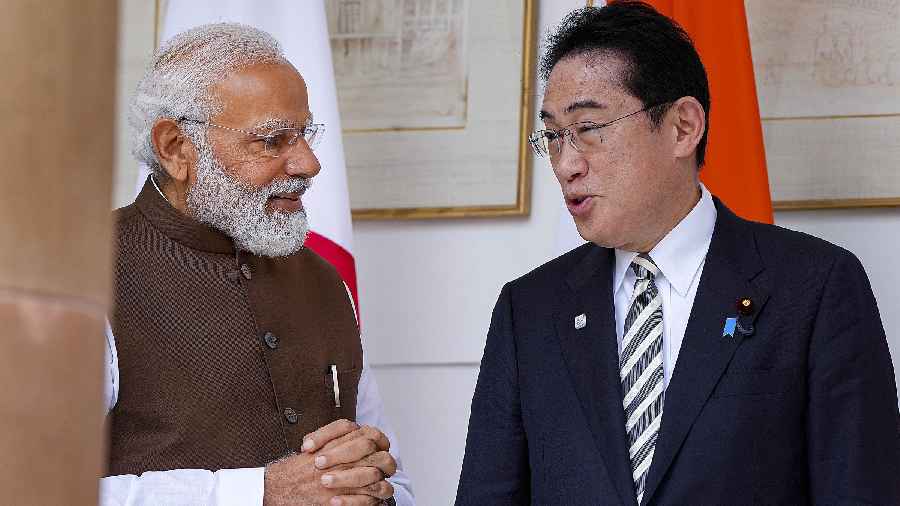Every bilateral engagement between Indianand Japanese leaders, irrespective of theirparties and identities, captures a bonhomiethat is rare. So was the case with the recent visitby the Japanese prime minister, Fumio Kishida, toIndia. Mr Kishida and Prime Minister NarendraModi shared golgappas, talked about the IndoPacific, and recommitted their nations to a strongpartnership. In many ways, Mr Kishida’s visitserves as a reminder of just how solid the bilateralrelationship is: he is Japan’s third prime ministerin three years but that churn does not appear tohave any significant impact on New Delhi’s tieswith Tokyo. Yet, the trip by Japan’s leader alsounderscores the differences that exist between thetwo friends and the limitations that still curtailthe full potential of their partnership. On the onehand, Mr Kishida emphasised in his public statements that in his view, India is a central part of thefuture of the broader Indo-Pacific region. He unveiled a new strategy for the region in New Delhi.Both nations view China as a principal threat, andare deepening ties through bilateral and multilateral military exercises as well as coordination inthe Quad, a grouping that also includes the UnitedStates of America and Australia.
But at the same time, Japan’s internal political debates have hobbled efforts by India to secure an amphibious aircraft from Tokyo nearly a decade after the countries began negotiations for that acquisition. The war in Ukraine is also emerging as a visible point of divergence between the nations. In New Delhi, Mr Kishida made it clear that he sees no reason for any country to be ambivalent about criticising Russia over its invasion. That the Japanese prime minister headed straight to Ukraine from India — he was the only G7 leader to have not travelled to Kyiv until now — added to the sense of dissonance between New Delhi and Tokyo. With Japan chairing the G7 and India the G20 this year, the two friends will need to navigate carefully any such differences. Once again, shared views on China should function as the glue that binds them, with Japan trying to get its companies to pull out from Chinese investments and transfer them to other Asian nations such as India. If India plays its cards well, the sweet chutney should overpower its spicier counterpart in the golgappa goodwill between the countries.










